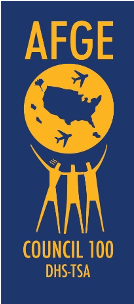First, we wish you all a happy and healthy Asian American Pacific Islander (AAPI) Month! Our brothers and sisters in this community have suffered, persevered, and offered great contributions to the United States of America, its territories, and the world! Council 100 has experienced the welcoming culture of our Union siblings at airports in the Hawaiian Islands, Guam, Saipan, and of course, throughout the country by simply engaging with those in the AAPI community.
Asian-Pacific encompasses all the Asian continent and the Pacific islands of Melanesia (New Guinea, New Caledonia, Vanuatu, Fiji and the Solomon Islands), Micronesia (Marianas, Guam, Wake Island, Palau, Marshall Islands, Kiribati, Nauru and the Federated States of Micronesia) and Polynesia (New Zealand, Hawaiian Islands, Rotuma, Midway Islands, Samoa, American Samoa, Tonga, Tuvalu, Cook Islands, French Polynesia and Easter Island).1
Despite Congress’s passage of an Asian Pacific American Heritage Week, in 1978, there was still a drive to secure a heritage month. This finally occurred in 1990, when Congress expanded the week to month covering the month of May. May was selected to commemorate the immigration of the first Japanese to the United States on May 7, 1843, and to mark the anniversary of the completion of the transcontinental railroad on May 10, 1869. As history has taught us, many of the workers who laid the tracks were Chinese immigrants.1
Still, there is some conflict with how this heritage month includes, does not include, or obscures certain demographics of the Asian American, Pacific and Hawaiian Islanders, East, South, and Southeast Asian experiences. Our brothers and sisters who identify with any of the geographical locations mentioned may agree that the terminology of this heritage month is too broad in scope, and it could be argued successfully that no one particular culture receives its rightful honor of proper representation, and even then, some are recognized more than others.
In addition to frequently used labels, such as “Asian American” and “AAPI (Asian American and Pacific Islanders)” other acronyms including AANHPI (Asian Americans, Native Hawaiians and Pacific Islanders) and APIDA (Asian Pacific Islander Desi American) have emerged to become more inclusive.2
With all this in mind, we should continue to honor our brothers and sisters in this movement, not only by recognizing and acknowledging their contributions to society, suffering in recent and historical times, and rich cultures which we have all enjoyed directly or indirectly, but also by studying their respective cultures, providing ourselves the understanding and giving respect to those whose heritage has greatly enriched the United States and the world.
In Solidarity and Unity,
Hydrick Thomas, President | Mac Johnson, Council Executive Vice President | Johnny Jones, Council Secretary-Treasurer | Thomas Schoregge, Region 1 V.P. | John Hubert, Region 2 V.P. | Janis Casey, Region 3 V.P. | Becky Mancha, Region 4 V.P. | Greg Biel, Region 5 V.P. | Bobby Orozco Jr., Region 6 V.P. | Joe Shuker, Region 7 V.P. | Victor Payes Martinez, Fair Practices Coordinator | Concetta Fialkowski, Women’s Coordinator | Christopher Blessing, AFGE Council 100 Attorney
